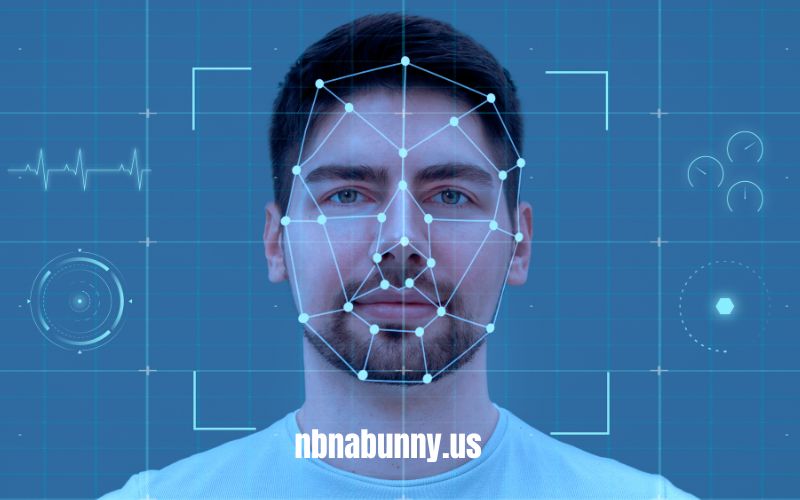Face recognition AI is transforming many industries, from security to entertainment, healthcare to retail. With the advancement of machine learning and artificial intelligence, face recognition systems have become increasingly accurate, faster, and capable of processing large datasets in real-time. This technology identifies and verifies human faces using sophisticated algorithms that analyze facial features and match them against a database.
In this post, we will dive deep into what face recognition AI is, how it works, its benefits, challenges, and potential future developments. Whether you are considering using this technology or simply curious about it, this guide will help you understand everything you need to know.
Key Points:
- Face recognition AI is a technology that uses AI to identify or verify people based on their facial features.
- It is used across various sectors, including security, retail, and healthcare.
- The future of face recognition algorithm holds promise for even greater accuracy and new applications.
What Is Face Recognition AI and How Does It Work?
Face recognition AI is a system that can identify or verify a person by analyzing their facial features. It works through several steps: capturing an image of the face, extracting unique features like the distance between the eyes or the shape of the jawline, and comparing these features to a database of known faces.
The technology relies on deep learning algorithms to process large volumes of data. These algorithms learn from the data, improving the system’s accuracy and ability to recognize faces in various lighting conditions, angles, or environments.
For example, consider the use of face recognition in smartphones. When you unlock your phone, the system scans your face, analyzes its features, and matches them to a saved profile. If the match is accurate, the phone unlocks.
How Is Face Recognition AI Used in Security?
One of the most prominent uses of face recognition AI is in the field of security. It is used for surveillance purposes, such as monitoring public spaces or securing access to restricted areas. Airports, for example, use face recognition to enhance security and speed up the passenger identification process, reducing wait times.
This technology also plays a crucial role in law enforcement. Police use face recognition to identify suspects in criminal investigations by matching facial images from crime scenes with a database of known criminals. In some cases, face recognition has helped solve long-unsolved crimes by identifying perpetrators.
Table: Example of Face Recognition in Security Applications
| Industry | Application | Example Use Case |
| Airports | Passenger identification | Speed up check-in and boarding process |
| Law Enforcement | Criminal identification | Identify suspects from surveillance footage |
| Government | Secure facility access | Use face recognition to authorize access |
Note: Face recognition in security raises privacy concerns, especially in public surveillance.
What Are the Benefits of Face Recognition Algorithm?
The benefits of face recognition AI extend beyond security. It offers convenience, speed, and accuracy, which can be applied in various sectors.
- Convenience: In industries like retail, face recognition can improve the customer experience. For instance, payment systems may use face recognition for quicker transactions, eliminating the need for wallets or cards.
- Efficiency: Face recognition AI can automate processes, saving time and effort. For example, it is used in hospitals for patient check-ins, reducing manual labor and ensuring accurate records.
- Enhanced Security: The system offers higher accuracy in identifying individuals compared to traditional methods like passwords or PIN codes. It helps to prevent fraud, identity theft, and unauthorized access.
Table: Comparison of Traditional Security Methods vs. Face Recognition Algorithm
| Feature | Traditional Methods | Face Recognition Algorithm |
| Accuracy | Medium | High |
| Speed | Slow | Fast |
| Ease of Use | Requires manual input | Seamless, hands-free |
| Security Level | Vulnerable to breaches | More secure with AI-driven authentication |
What Are the Challenges of Skin Recognition AI?
While face recognition AI offers several advantages, it is not without its challenges. One major concern is privacy. As face recognition becomes more widespread, many people fear that their personal data is being collected without their consent, especially in public spaces.
Another challenge is the accuracy of the technology. Although face recognition has improved significantly, it can still struggle with identifying faces in poor lighting conditions, or it may misidentify individuals, especially in cases of ethnic and gender bias.
Finally, there is the issue of ethical use. The technology can be misused for surveillance purposes, leading to potential human rights violations. Governments and businesses must consider the ethical implications before implementing face recognition algorithm systems.
Reminder: It’s crucial to strike a balance between technological advancement and individual privacy.
What Is the Future of Face Recognition Algorithm?
The future of face recognition AI is both exciting and uncertain. With ongoing improvements in AI algorithms and the increasing availability of facial data, face recognition systems will become more accurate and capable of identifying individuals in a wider range of environments.
We can expect new applications to emerge in industries like retail, healthcare, and even entertainment. For instance, face recognition could be used to customize the content we see on our devices, creating a more personalized experience. Moreover, as AI becomes more adept at recognizing faces in challenging conditions, the technology will become even more reliable.
Conclusion: Is Skin Recognition Algorithm Here to Stay?
Face recognition AI is rapidly evolving and becoming an integral part of various sectors. While there are challenges, such as privacy concerns and ethical considerations, the potential benefits make it a technology that is likely to stay. Its ability to improve security, efficiency, and convenience makes it a powerful tool in today’s digital world.
As the technology advances, it will likely become more commonplace in our daily lives. Therefore, it is crucial to stay informed about its developments and how they might impact both businesses and individuals.
Reminder: Always be mindful of the privacy implications when using or adopting face recognition algorithm.
FAQ’s
- What is face recognition AI?
- Face recognition AI uses algorithms to identify or verify a person’s identity based on their facial features.
- How accurate is face recognition algorithm?
- Face recognition algorithm has become highly accurate, though challenges like lighting and facial distortions can impact its performance.
- Is face recognition AI used in smartphones?
- Yes, smartphones use face recognition to unlock devices and authenticate payments.
- What industries use face recognition algorithm?
- Security, healthcare, retail, and law enforcement are some of the key industries using face recognition algorithm.
- What are the privacy concerns associated with face recognition AI?
- Privacy concerns include unauthorized data collection and surveillance, leading to potential misuse of personal information.


